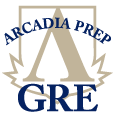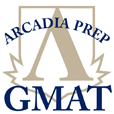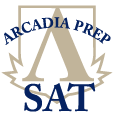If both x and y are positive even integers, then which of the following ... ...
If both
x and
y are positive even integers, then which of the following expressions must also be even?
(A)
yx − 1
(B) ...
(C) ...
(D) ...
(E) ...
*This question is included in
Nova Math - Problem Set A: Substitution
Replies to This Thread: 0
|
----
Posted: 05/10/2012 21:49
Where did x=y= 2 come from?

Contributor
Replies to This Thread: 0
|
----
Posted: 05/10/2012 22:16
Carrie, this is a case of substitution, so the author is just plugging in simple numbers to test quickly several outcomes.
Replies to This Thread: 0
|
----
Posted: 09/23/2012 19:00
Should you test 2 numbers for A) just to be sure?

Contributor
Replies to This Thread: 0
|
----
Posted: 09/24/2012 16:41
Dusty, you should test as many numbers as required to eliminate the other answers. In problems like this, 2 or 3 are reasonable to get to the right one. It just so happens with x=y=2, we can arrive the right answer immediately.
Replies to This Thread: 1
|
----
If both x and y are positive even integers, then which of the following ... ...
Posted: 10/14/2013 14:47
If x=4 and y=2, which are positive even integers, gets plugged in to (A) it yields an odd integer (15). What am I doing wrong?
Reply 1 of 1
Replies to This Thread: 0
|
----
Posted: 10/27/2013 21:53
I don't think so, m; if x=4 and y=2, then solution a is 2^3, which is 8. You are reading the equation as (y^x)-1, but it is y^(x-1). Scope the superscript.
Replies to This Thread: 1
|
----
If both x and y are positive even integers, then which of the following ... ...
Posted: 12/14/2013 19:01
If we plug x=4 and y=2 , then we can get c as correct answer.
Should we plug different numbers until we have only one correct answer?

Admin
Reply 1 of 1
Replies to This Thread: 0
|
----
Posted: 12/16/2013 16:56
Mohammed, apparently, yes.











